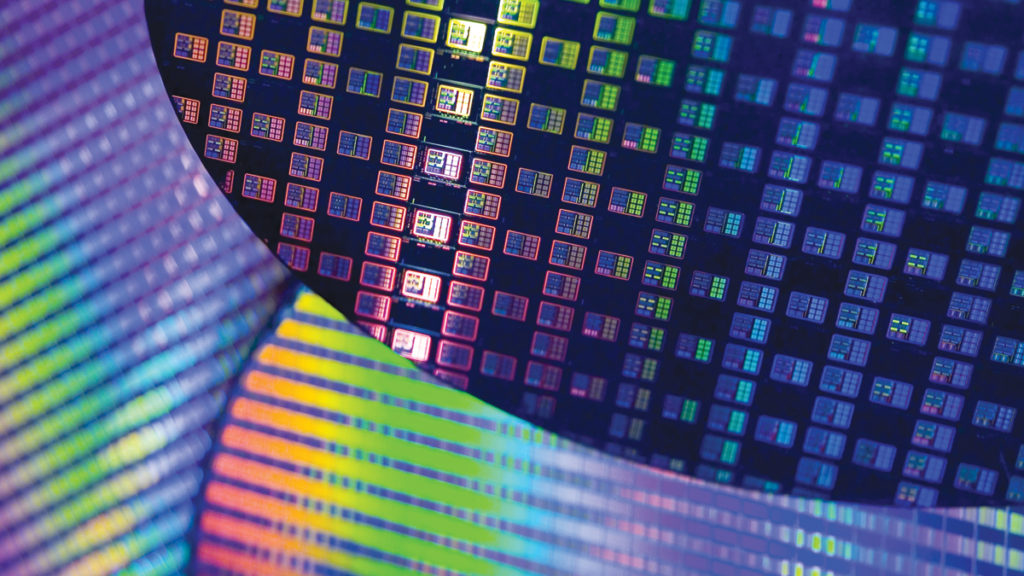
Is TSMC on its way to becoming some kind of monopoly? It’s starting to look like it! According to a report from China Times, Intel has already convinced the Taiwanese semiconductor giant to fab its long-delayed 7 nm processors (apparently, CEO Bob Swan wasn’t joking with his recent comments regarding outsourcing). Needless to say, this could be a huge problem for AMD, which already has plenty of other competitors (e.g., Apple, NVIDIA) to worry about in terms of securing capacity.
RetiredEngineer (@chiakokhua) has taken the liberty of translating the China Times report, which you can check out in full below. Assuming that the information is true, we could expect an epic bidding war between Intel and AMD in the near future – and unfortunately for the latter, we already know who has the bigger pockets.
I DeepL for you: pic.twitter.com/Zj1wnKkW6i
— RetiredEngineer® (@chiakokhua) July 27, 2020
Computer processor makers Intel and Supermicro will battle for TSMC’s 7-nanometer-generation process capacity next year. Intel is 12 months behind its internal targets for 7nm yield performance, and the launch of its first 7nm processor has been postponed until the end of 2022, Intel said.
The company has reached an agreement with foundry leader TSMC to use TSMC’s 7nm optimized version of its 6nm process for mass production of processors or graphic chips starting next year. TSMC doesn’t comment on single customer orders or business development; Intel also said it doesn’t comment on market rumors.
Supermicro will continue to switch its product lines as planned, but because of the delay in Intel’s process, it will expand its shipments of processors and graphics chips next year to capture market share in desktops, laptops and servers. Supermicro will begin to alternate the generations of its Zen 3-based processors and RDNA 2-based graphics chips at the end of this year and into next year, increasing orders for TSMC’s 7/7+ nanometer process.
In the second half of this year, TSMC began converting some of its 7nm capacity to 6nm, and will enter mass production by the end of this year. The market had expected TSMC to receive fewer orders from Huawei and Hess, resulting in a shortage of capacity for TSMC’s 7nm process next year. However, with Intel confirming to outsource and book 6nm capacity next year, and Supermicro expanding orders to cover most of its 7/7+nm capacity, TSMC’s advanced processes will remain at full capacity in the first half of next year, resulting in a slow first quarter of operations.
The first Intel 7-nanometer-based PC processors are expected to be shipped in volume by the end of 2022 or early 2023, with 7-nanometer server processors not expected to be shipped in volume until the first half of 2023, CEO Bob Swan said in a press conference. Intel will continue to focus on its own 10-nanometer capacity for the next two years, using external foundry capacity and improving design methods such as die disaggregation and advanced 3D packaging to reduce the impact of process delays on product progress.
Intel’s lOnm transistor volume (MTr/mm2) is slightly better than TSMC’s 7nm and comparable to TSMC’s 6nm, according to equipment industry sources, and in the second half of the year the two companies will begin working together to redesign the photomasks on some of Intel’s lOnm processors or graphics chips to conform to TSMC’s processes. Intel has reached an agreement with TSMC and has ordered 180,000 wafers of TSMC’s 6-nanometer production capacity for next year, the company said.
Supermicro will begin converting Zen 3 processors and RDNA 2 graphics chips by the end of the year. The company is optimistic that Intel’s process delay will help it gain more x86 processor market share, so it will increase its wafer investment in TSMC and expects to outsource 200,000 pieces of 7/7+ nano capacity next year, doubling its capacity from this year and making it the largest 7-nanometer generation process for TSMC next year. Customer.
